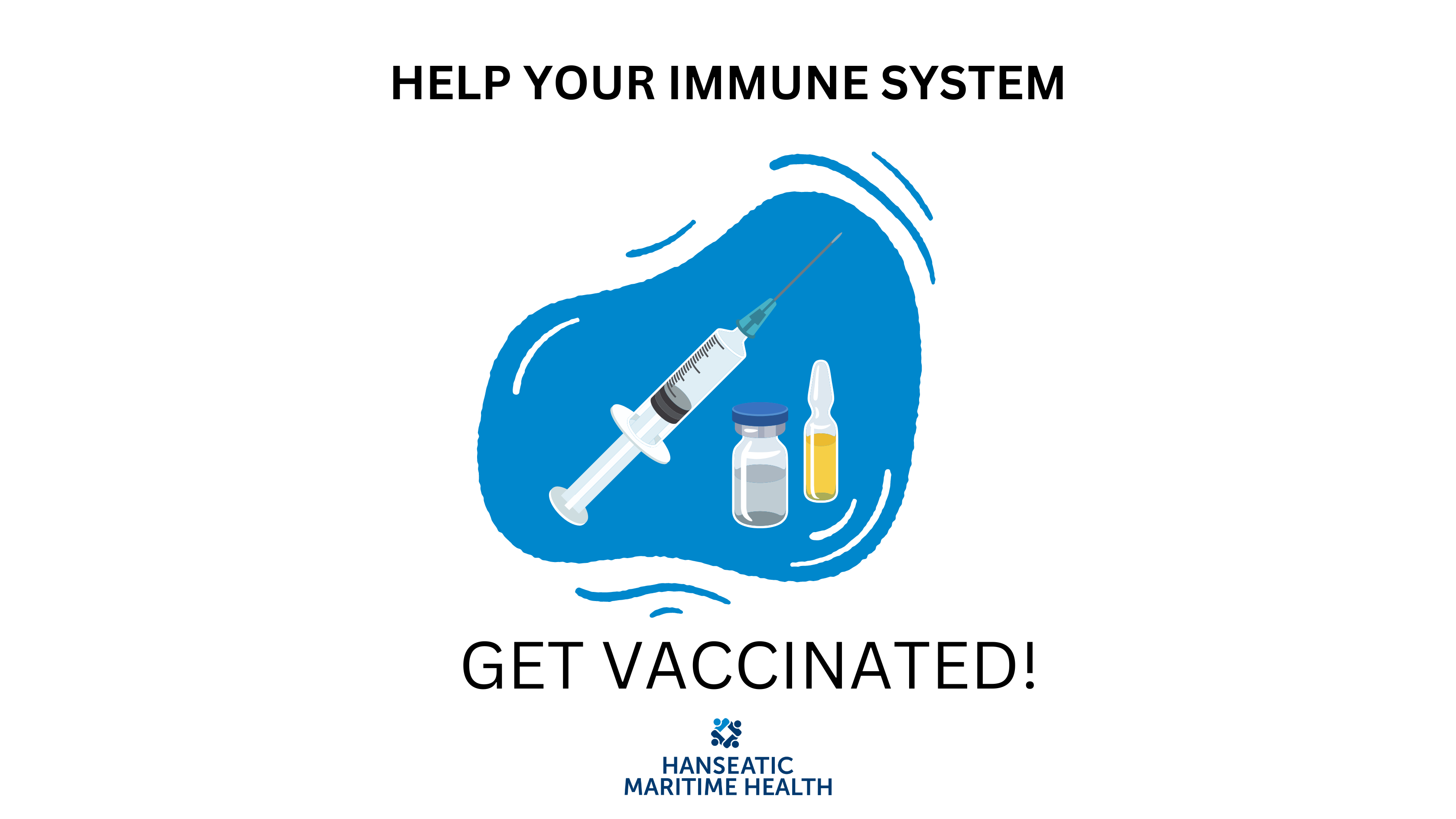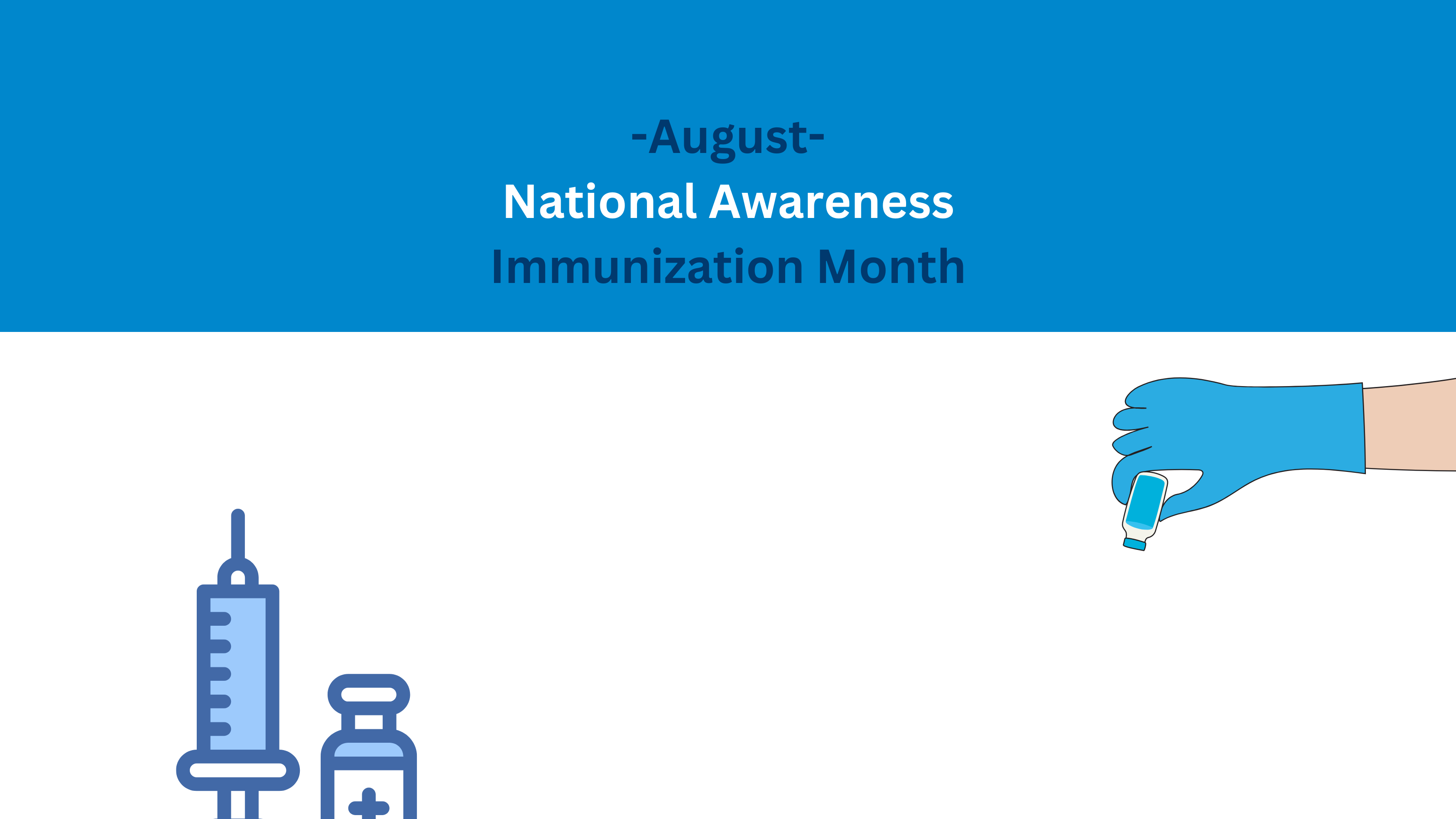Hanseatic Maritime Health would like you to emphasize that all adults and children should get regular immunizations to stay healthy and safe.
Why is it so important to get regular immunizations, especially for children?
Many people think that so-called natural immunity or herd immunity will keep them safe, or that many of the diseases for which we immunize don’t exist anymore.
But that’s not true.
First of all, diseases like polio or measles, are rare because generations of people were immunized against them. But outbreaks do occur all over the world and today with so many people able to travel frequently, exposure can happen.
Second, getting immunized protects you and those around you by limiting the spread of disease. The more people who are vaccinated, the less likely a major outbreak will occur. Immunization is key to creating herd immunity!
Lastly, vaccination is much safer than trying to develop natural immunity from a disease because some diseases can have lasting, damaging effects on your body—which can be completely avoided by getting vaccinated instead!

How do vaccines protect us?
Another myth about vaccines is that they make you sick, overload your immune system, or can even cause autism in children.
None of this is true. Vaccines help our immune systems fight infection faster and more effectively. Vaccines are made of very small amounts of weak or dead germs, so they won’t make you sick. Some people can experience mild side effects from some vaccines, such as soreness at the injection site, but these dissipate quickly. When you get a vaccine, it sparks your immune response, and trains your body to recognize disease-causing germs and fight them off if they ever invade your body.
Finally, the idea that vaccines cause autism came from a long-since-discredited and retracted study that incorrectly linked the measles, mumps and rubella (MMR) vaccine to autism. This connection has never been accurately confirmed.
How do we know that vaccines are safe?
Before a new vaccine is ever considered for approval by the FDA, pre-clinical and clinical studies are conducted to determine safety, effectiveness, and dosing. Vaccine trials have to involve even more participants than standard drug clinical trials because vaccines are intended for the entire population. Once a vaccine reaches the FDA approval phase, it is again evaluated for safety, effectiveness, and consistency of batch purity and potency.
For the seafarers, the vaccination is very important as they are travelling all around the world, in different places with different kind of bacteria or viruses. They should be responsible for themselves, their colleagues and their families when it comes about vaccines. If a disease is well contained in a country, this doesn’t mean that the virus/bacteria can not spread elsewhere with the „help” of a seafarer. That is why we need to stop this spreading by vaccinating each of us for the diseases that have a vaccine available and approved by the medical community.
In conclusion, National Immunization Awareness Month serves as a crucial reminder of the importance of vaccinations for everyone—adults, children, and especially seafarers who work in close quarters and travel to diverse regions. Vaccines are a key component in safeguarding health, preventing the spread of infectious diseases, and ensuring the safety and well-being of both individuals and communities.

